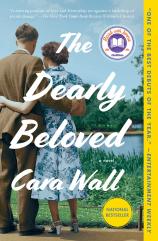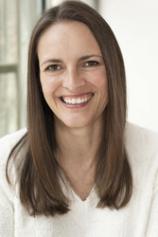Reading Group Guide
Discussion Questions
The Dearly Beloved

1. THE DEARLY BELOVED opens with the scene of James grieving Charles’s death. In what ways does grief frame this novel? How do each of the characters respond to the feelings of abandonment that accompany grief? In whom or what do they choose to put their faith after loss? In whom or what do you put your faith in difficult times?
2. In the prologue, Nan says that “she was soft, and Lily was straight. She wavered; Lily was plumb” (2). Describe Nan and Lily. Do you agree with Nan that she and Lily are opposites? If so, how do they overcome that to become the kind of friends Lily refers to as “her stitches, her scaffold, her ballast, her home” (338).
3. Early in the novel, Charles’ father tells his son that “Obligations are the fuel of life, Charles. Reputation is their reward” (5). Do you agree? To what do each of the four characters obligate themselves, and what reputation do they receive in return? What are the obligations in your life, and what do you gain by fulfilling them?
4. When Charles and Lily first meet in the library, Charles notices that she looks “entirely sad” (9). And after their first fight, he acknowledges that he “could not bear the fact that she would always be sad” (102). What does Charles hope for Lily, and how does it feel for him to know he can’t heal her? Why do you think he married her, knowing he could never make her happy?
5. James is anxious about the difference between his upbringing and Nan’s, describing it as a chasm that loomed “dark and large” (87). What are the geographic, religious and class differences in their upbringings? Why do they feel unbridgeable to James?
6. Love seems to come easily to Nan and Charles. Why? Conversely, James and Lily are wary of love: James has a “look of distrust...the look people had when they needed to be treated with dignity after so much of life had been unfair” (60) and Lily believes that “the prerequisite for love was trust; and Lily did not trust anything” (81). Why do James and Lily struggle to trust, and therefore, love, their partners? How does love relate to trust? And how does trust relate to faith?
7. Nan and Charles come to very different conclusions about what they can accept regarding their partners’ faith. Nan realizes that “of all the things she thought she could give up for [James], she could not give up her faith in God” (61). What would Nan’s life have been like if James had decided not to be a minister? How does his decision to become a minister enrich her life and faith? Conversely, Charles decides that he doesn’t need Lily to believe in order to marry her --- “I don’t need you to believe in God, I just need you to believe in me” (105). Does Lily’s rejection of Charles’ religion diminish or enlarge his life and faith?
8. After Nan helps Lily with her twins, she realizes that “every right action begets another; every extension of a hand forms a rope and then a ladder” (249). When have you seen this play out in your own life? Are there actions your book club could take to help your community like coordinating a book drive or volunteering at a library?
9. In the beginning of the book, Charles’s college professor Tom says that “only empathy allows us to see clearly. Only compassion brings lasting change” (14). How does this statement apply to the struggles Charles and James encounter while leading their church? What values are they trying to engender in their congregation? To what extent do they succeed?
10. After their first meeting, Nan says that Lily makes her feel “invisible” (169) and later says that just being in proximity to her makes her feel “brittle and resentful” (183). Is there anyone in your life who makes you feel this way? Lily’s reasoning is that she “knew that she could not give Nan one inch, not one conversation. Even one gesture of friendship would lead to the expectation of more...” (161). Do you feel that way about anyone in your life? Why?
11. Nan desperately wants to have a child --- she calls it her “fondest dream” (215) --- but suffers two miscarriages over the course of the novel. Lily doesn’t want to have children, but gives birth to twins. Why is Nan hesitant to seek treatment for her infertility? What does it mean to Nan to be a mother? What does it mean to Lily?
12. After Charles’ controversial sermon, Marcus says that “these people need a good disaster. They need to know what it means for life to be hard. And I’m not talking about death hard. I’m talking about suffering” (288). Will’s diagnosis brings hard suffering into the lives of the four main characters. Were you surprised by Charles, Lily, James, or Nan’s response to Will’s diagnosis? Could you relate to the suffering it produced in them? Did you agree or disagree with the courses of action they took in response to his condition?
13. Marcus and Annelise only appear toward the end of the book. What role do each of them play in the lives of the Barrett and MacNally families? How would the book be different without them?
14. In many wedding ceremonies, the pastor welcomes the attendees with the greeting “Dearly beloved, we are gathered here today...” Toward the end of the novel, Nan notes that “they were, the four of them, married to each other” (287). In what ways are the various couples tied to each other? How do they learn to love each other? Overall, why do you think Wall chose this phrase as the title of her novel?
The Dearly Beloved
- Publication Date: July 7, 2020
- Genres: Fiction, Women's Fiction
- Paperback: 384 pages
- Publisher: Simon & Schuster
- ISBN-10: 1982104538
- ISBN-13: 9781982104535







